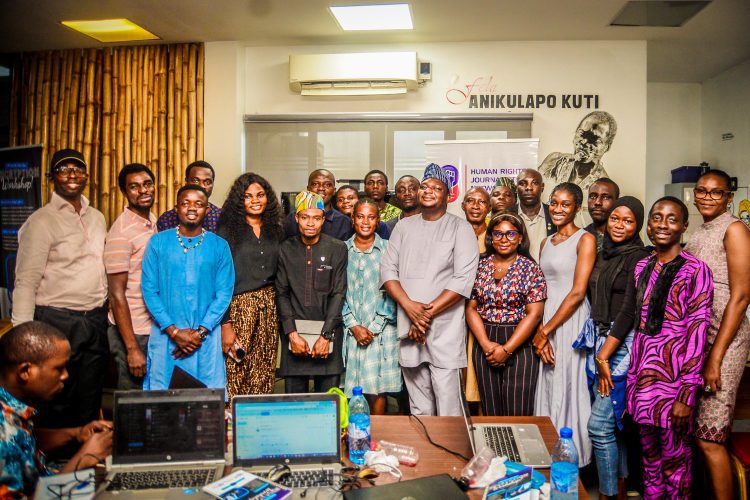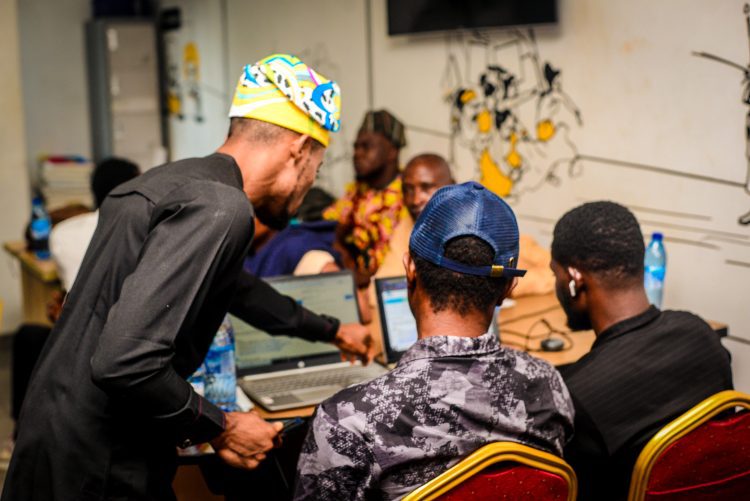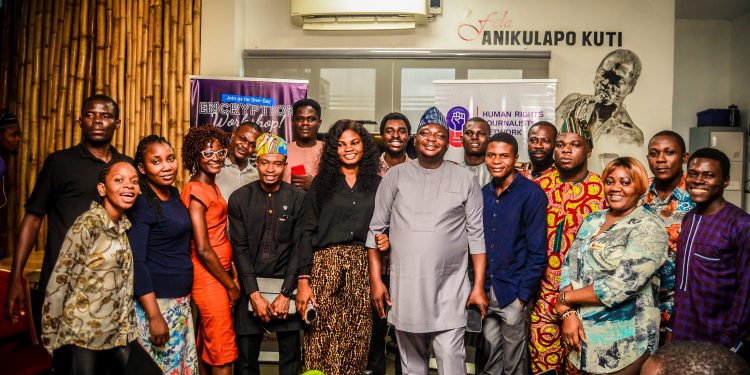Journalists and human rights defenders have been charged to embrace encryption, not just as a digital safeguard, but as a tool that helps to promote the safety of journalists and their sources, as well as sustain freedom of expression online.
The charge was made by Namrata Maheshwari, Senior Policy Counsel and Encryption Policy Lead at AccessNow while delivering her keynote address at a one-day workshop organized by the Human Rights Journalists Network Nigeria (HRJN) to mark the 2024 Global Encryption Day, supported by the Internet Society Foundation.
Maheshwari in her address shared that the use of spyware is becoming more pervasive, including in Nigeria, noting that “Nigerian authorities’ access to spyware is well documented and growing. A 2023 report traced purchases of surveillance technology worth over 2 Billion USD to the Nigerian Government.”

She also noted that “Encryption makes it possible for us to enjoy online a semblance of the privacy that we rely on offline. We would never give up the ability to talk to someone, in private, behind closed doors, or to be the only person with access to a locker with personal files. Why then, should we not have the same expectations of access to private spaces online?
“The online sphere has empowered more journalists to speak, but has also been weaponised to target journalists and people with unfavourable views of authorities”, adding that “It is therefore vital that journalists be equipped with measures to mitigate risks and enhance capacity to do what you do – and I believe digital security is at the heart of this. It is also a way to sort of lead by example, and empower your networks, and their networks, in different walks of life, with a toolkit that allows them to live, and do their jobs, more safely.”
Maheshwari added that we need to see that encryption is a means to an end; the end goal is to protect privacy and free speech. It is the strongest means we have today and it must be protected at all costs.”
For her part, Naro Omo-Osagie, the Africa Policy and Advocacy Manager at AccessNow, said encryption is important in safeguarding journalistic sources, especially where government is against dissent and opposing voices, because the sources are often whistleblowers who are risking their lives to provide information to hold government accountable.
Omo-Osagie mentioned that “encryption is not just a digital safeguard, it protects the flow of information, the integrity of information and without encryption, the ability of journalists to work effectively and freely without intimidation or attack.”
She also noted that governments are trying to weaken encryption and investing heavily in the same, but journalists should begin to do investigations that expose what has happened, tell the stories of people and communities affected by surveillance and amplify the voices of vulnerable groups.
While commending HRJN for organizing the training, Omo-Osagie explained that training like this would build the capacity of journalists to advocate for stronger policy on encryption, mobilize public action and challenge the government’s narrative, such that the right laws are in place and implemented.
Corroborating her, Blessing Oladunjoye, the Co-founder of HRJN and Publisher of BONews Service, also harped on collaboration among journalists to equip one another on encryption, and to promote freedom of expression online.
Oladunjoye shared that with encryption, journalists can convert the information they receive into codes or data which would prevent unauthorized access.

Citing recent cases of arbitrary arrests of journalists in Nigeria, Oladunjoye mentioned how digital tools were deployed to access the messages and locations of the journalists, stressing the importance of encryption and how to stay safe online.
Earlier in his welcome remarks, Mr Kehinde Adegboyega, the Executive Director of HRJN, said the purpose of the workshop was to support journalists to continue to do their work freely by getting familiarized with encryption.
Adegboyega added that HRJN will continue to support journalists to thrive in their line of duty despite the growing attack against press freedom in Nigeria.
He also commended the Internet Society Foundation for supporting the training session.
The training featured practical sessions and installation of encryption tools on personal devices of the participants. The practical sessions were facilitated by digital security experts; Godstime Agho and Israel Olatunji.


